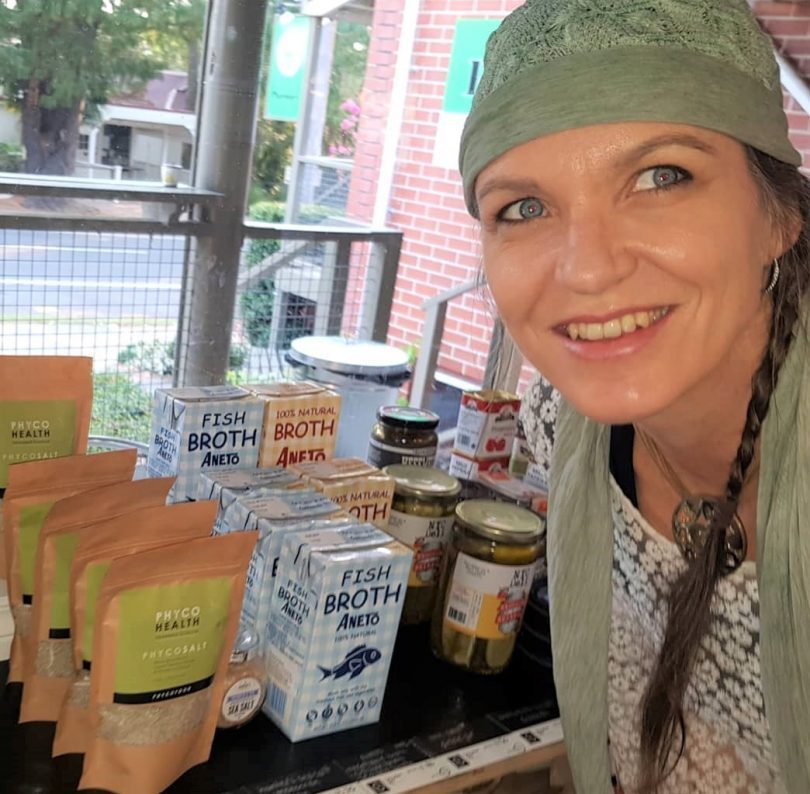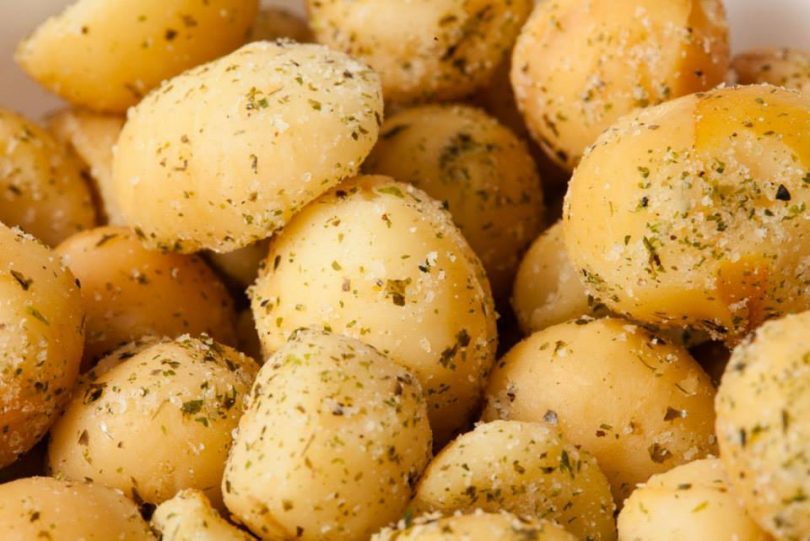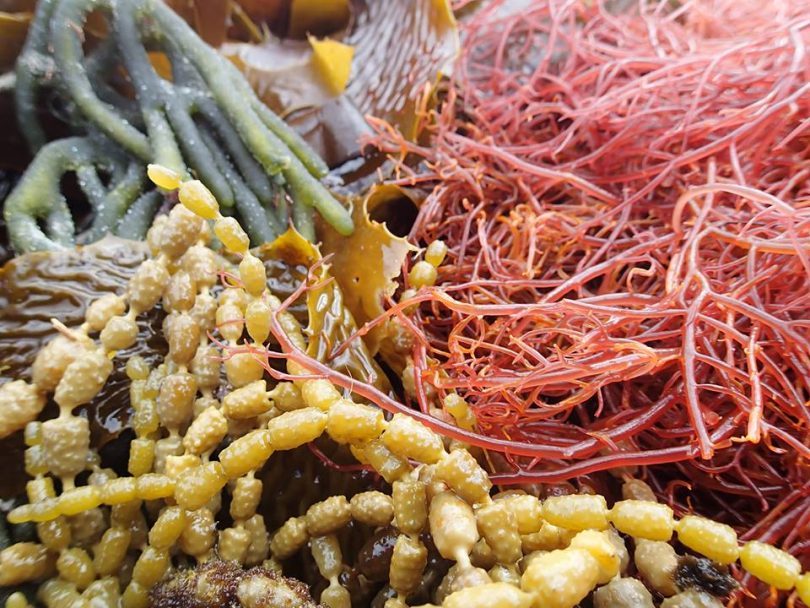
Pioneering seaweed researcher Pia Winberg with some of the products in her Phycohealth line. Photo: Facebook.
Until a few years ago, most food-grade seaweed was sourced from Japan and Korea, where commercial farms produce tonnes of the stuff to meet worldwide demand.
But Australia is catching up and it’s happening close to home, with Shoalhaven-based marine biologist Dr Pia Winberg running Australia’s only commercial seaweed farm from her farm-lab facility in Nowra.
Mark McNamara and his wife Xia run Batemans Bay Nut Roasting Company and were sourcing seaweed powder for their popular seaweed and wasabi roasted macadamia from Asia until they ran into Pia at a local market.
“We’ve been sourcing seaweed powder from Pia for the last six years and as far as I know, there are no other commercial options in Australia,” Mark says.
“We were buying sheets of seaweed from Asian grocers and grinding it ourselves for years so it’s fantastic to have access to Pia’s high quality, local product.”

Seaweed and Wasabi roasted nuts from Batemans Bay Nut Company. Photo: Facebook.
Although the relatively unpolluted waters of the south coast are not a bad option for seaweed harvesters, cultivating edible seaweeds is a guarantee of the purity of the product.
“I wasn’t real keen on what was happening with water pollution off the coast of Japan, where we were getting our seaweed powder,” Mark shares.
Mark orders a kilo or two of Pia’s green gold every month and she orders nuts through him to use in the food line for her company, Phycohealth, which also produces supplements and a skincare range.
“The main thing is to have seaweed in food,” Pia explains, “but if you can’t for some reason eat enough of it to make a difference to your health, then supplements are a way to access the concentrated nutrients like Omega 3’s and sea minerals.”
Uses for medical-grade seaweed, which is only possible with farming because conditions can be controlled, has been a passion of Pia’s since she began researching the benefits of seaweed 20 years ago. She has recently been able to explore the benefits in a very personal way.
“I had an accident at work where my scalp was badly damaged earlier this year,” Pia explains. “And it’s ironic that because of that, I have been able to experience firsthand the phenomenal effects of our seaweed creams on wound healing.”

Dr Pia Winberg has been researching seaweed along the South Coast for 20 years and is a former research fellow at the University of Wollongong. Photo: Facebook.
Pia’s farm produces four tonnes of dried seaweed annually, from about 40 tonnes wet and has five employees, a number which Pia expects will grow shortly.
“There has been a lot of interest in seaweed farming lately, it’s really gaining momentum because seaweed has been overharvested in some countries and it’s becoming clear that cultivation is the only way forward.”
While commercial seaweed farming is a relatively new industry worldwide and especially in Australia, Pia says that she sees it as a new crop to discover old nutrition which, as well as providing key nutrients that many westerners are lacking, can improve a number of inflammatory conditions.
“Some species of seaweed have a special molecular structure in their connective tissue that mimics connective tissue in humans, which are like a vegetarian bone broth; the type of molecules that we know are used to help people with joint and gut health.”
To learn more about Dr Winberg and the health benefits of seaweed, check out Phycohealth and Venus Shell Systems.
Original Article published by Elka Wood on The RiotACT.







